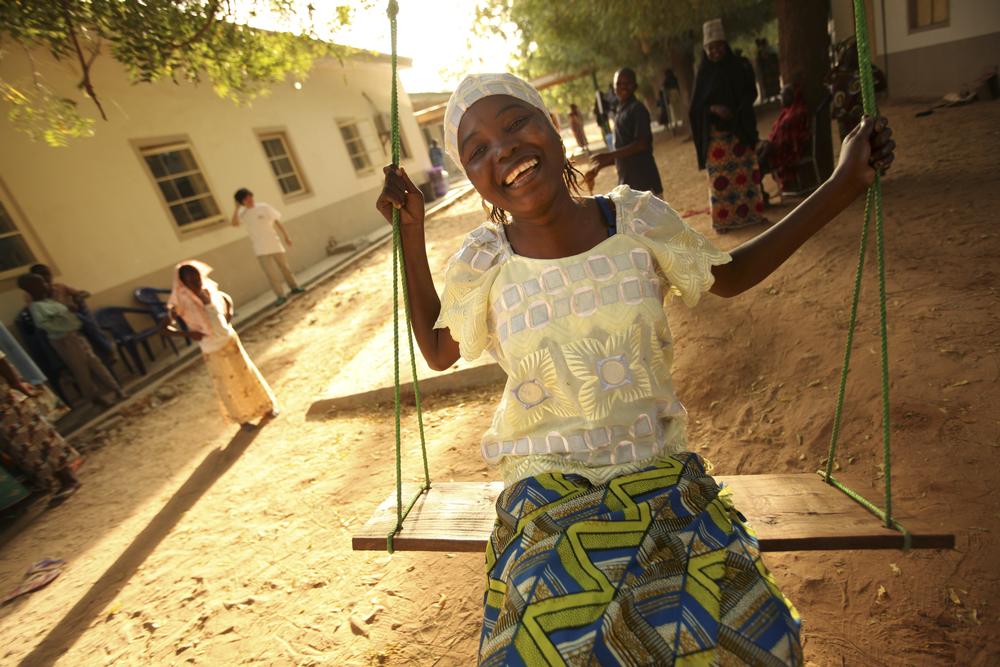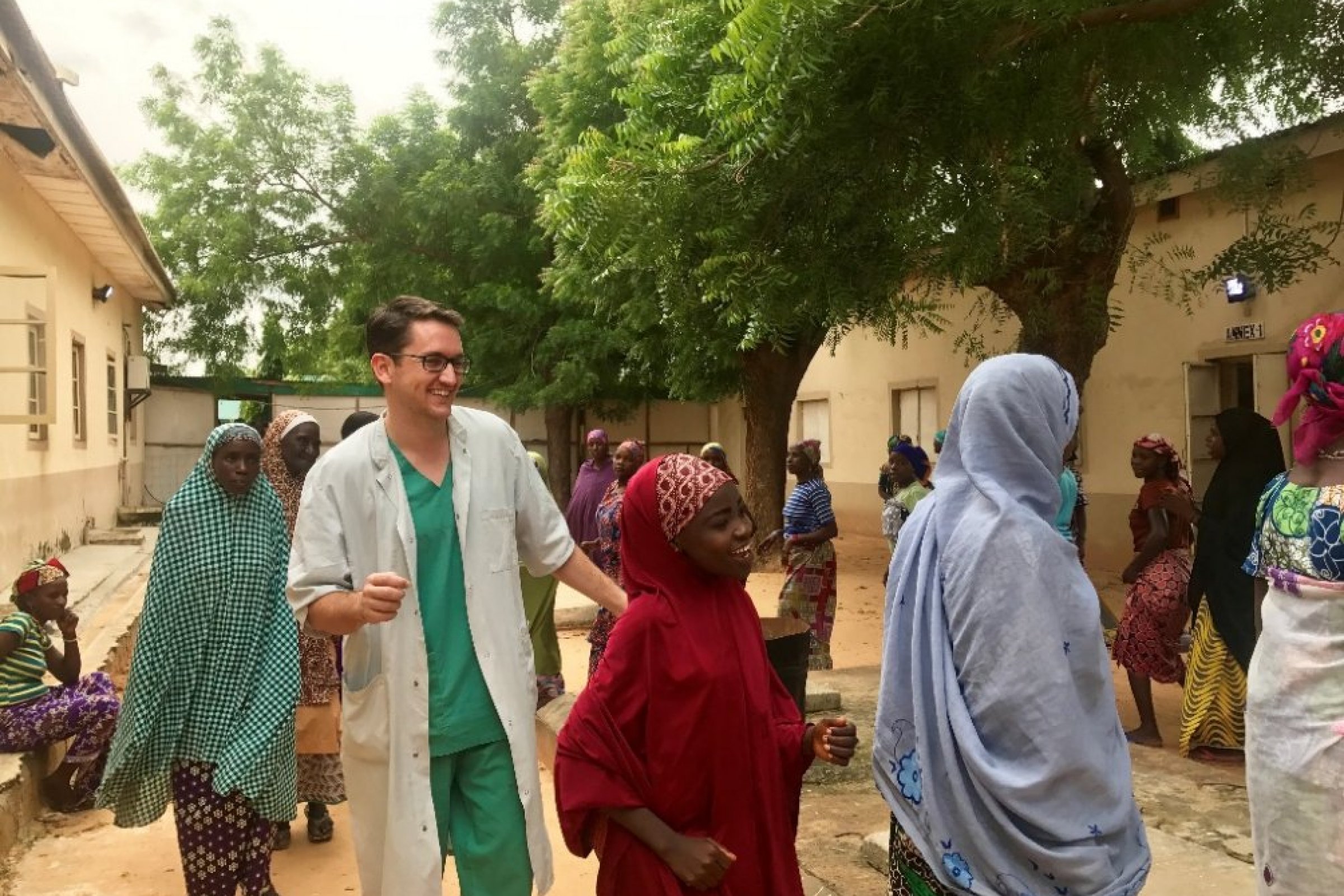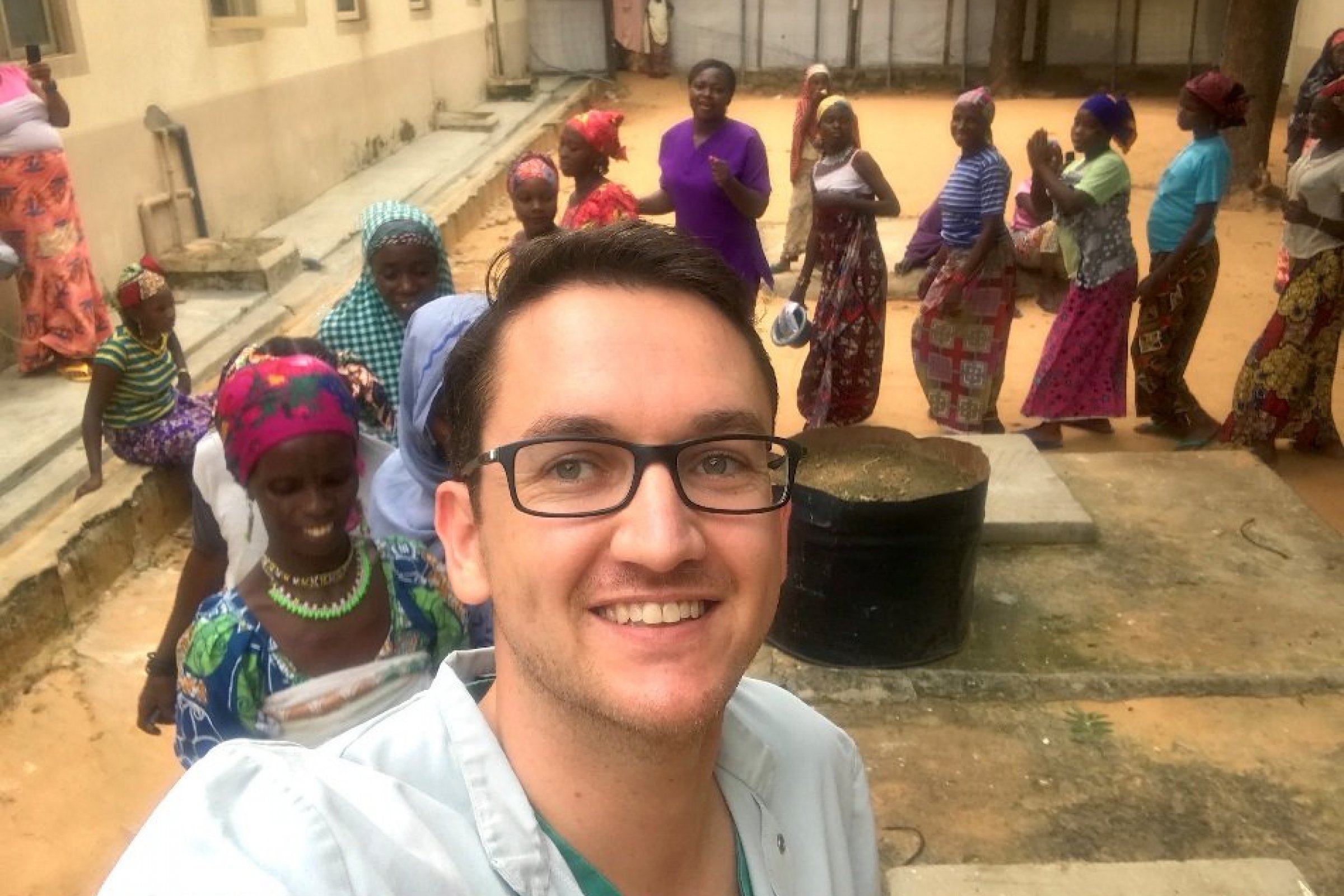Nigeria: "The psychological injuries take longer to heal than the fistulas"
Obstetrician-gynaecologist Jared Watts is in Jahun, Nigeria, on his first assignment with MSF. This week he joins the Wednesday Dance Club, where shaking your hips is essential therapy...
"So today I danced around a sewerage tank with a group of colourfully dressed ladies. Something I can't say I've done before or ever expected to do, but then again this is Jahun and MSF!
And when I say I danced, maybe not so well, as most of the audience and women were laughing uncontrollably as I tried to replicate their 'shaking of the hips' in the conga line.
Another difference between me and the rest of the dancers, besides my complete lack of rhythm and boring green scrubs compared to their brightly coloured dresses, was that most of them were also holding a catheter bag as they danced.
You see, these women are from the Jahun VVF (vesico-vaginal fistula) Ward. For a number of different reasons, they have fistulas, or holes, between their bladders and vaginas and even sometimes between their bowels and vaginas
Learn more about fistula
Millions of women need psychological and medical care after complicated childbirth
The stories these women carry are horrendous. They come to the unit not only with their physical injuries but with terrible psychological trauma as they have been shunned by their families and society. Often these injuries run deep and take longer to heal than the fistulas.
The stigma of fistula
The fistulas in Africa and in Jahun mostly come from obstructed labour. Women are in labour for days and the baby becomes stuck in the birth canal, too big (sometimes for a small pelvis) or poorly positioned.
The pressure of the baby's entrapped head stops blood flowing to the surrounding tissue, which includes the vaginal and bladder walls. This tissue can then necrose, with the tissue dying, and a hole or 'fistula' forms between the vagina and bladder or sometimes the bowels.
Urine or faeces escapes constantly through the fistula. Women affected by this often leave a trail of urine as they walk around, with an accompanying poor smell. Anything they sit on will become covered in urine. They can be made to leave the family home and live alone.
With no support, they often start to starve. No one comes near them because of the smell and they soon feel they are worthless. As outcasts, many lose all hope.
Rebuilding self-esteem
A small group of women also have fistulas from traditional medical practices. Some women had congenital abnormalities of their vaginas, such as a septum, or have female genital mutilation causing narrowing of the vagina.
This makes intercourse difficult or impossible, and they see or are forced to attend a traditional medicine practitioner who tries to cut open the vagina to enlarge it, with very limited anatomical knowledge and no offer of pain relief.
As a result of this kind of traditional medicine, many women suffer lacerations to their bladder, urethra or bowel.
Other women have been known to suffer similar injuries during home births when an unskilled attendant tries to open the vagina and cuts into surrounding organs.
Thankfully, many of these women hear about the MSF VVF programme, and attend for management of their fistulas.
The dance club helps with self-esteem – often people crowd round to watch and clap, but they're only allowed to join in if invited by the women themselves. I’ll tell you more about the programme we have here at the VVF ward next time."
MSF in Nigeria
Nigeria With over 190 million inhabitants, Nigeria is the most populous country in Africa.
Nigeria also has one of the fastest-growing economies, which is based primarily on the petroleum industry. However, a decade-long conflict has devastated the northeast of the country. Thousands have been killed and nearly two million people have been uprooted since fighting broke out between the military and non-state armed groups.
Médecins Sans Frontières/Doctors Without Borders (MSF) has been responding to disease outbreaks and emergency health needs in Nigeria for many years, focusing on maternal and paediatric healthcare throughout the country and scaling up our activities in the northeast as vast numbers of people caught up in the conflict depend on aid to survive.


